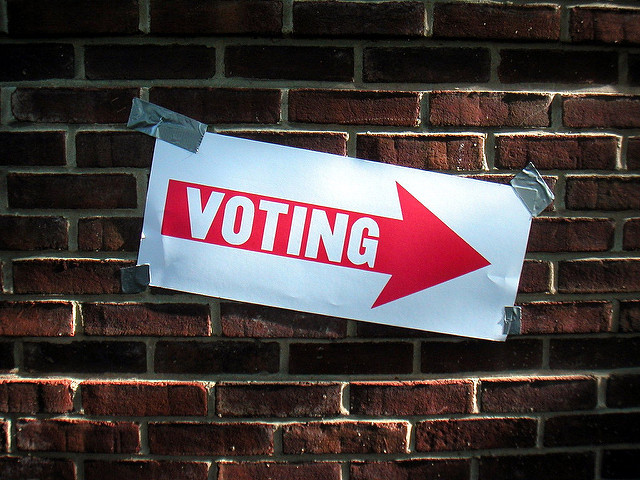A Muslim Community, Tarred Again
By Zahir Janmohamed
 |
| Huma Abedin. Via New York Magazine |
In 1995, I was a student delegate at the United Nation’s 50th Anniversary conference on religious harmony held in San Francisco. We began by reciting verses from each of the world’s major faiths, including an Islamic prayer that was listed as the “Mohamedan Prayer.â€
Seventeen years later, it is hard to imagine someone—let alone a major organization like the UN—using this archaic, Orientalist term to describe Islam. Americans know so much about Islam these days that I am frequently asked by strangers if I am Shia or Sunni.
But every once in a while—and particularly more often in an election year—there are reminders that the rise in awareness has not corresponded to the rise in sympathy towards Islam and Muslims. The recent comment by Congresswoman Michelle Bachmann (R-MN) that long time aide to Secretary of State Hillary Clinton Huma Abedin is a mole for the Muslim Brotherhood is just the latest example of this hysteria.
I do not worry about Abedin. A person of her intelligence and clout can withstand these attacks. I worry about Muslim high school and college students who wonder why they should even enter politics if they will, like Abedin, be constantly scrutinized because of their faith.
In 1999, I was an intern in Washington, DC, when I heard Abedin and Suhail Khan, a Muslim Republican himself accused of being an extremist, speak to the Muslim Public Service Network. It was Abedin and Khan who convinced me that there was—and is—space for Muslims in politics.
I remember Abedin spoke about traveling with then First Lady Hillary Clinton to the funeral for the King of Morocco. Abedin said her background as a Muslim helped inform Clinton of the Islamic etiquette at funerals. I was star-struck—and admittedly a bit love-struck—as she spoke about hanging out with the First Family. After her presentation, she handed out packets of M&Ms with the logo from Air Force One. I kept that packet for years, until a build-up of mold forced me to toss it out.
Three years later, I moved to Washington, DC, to start my policy career. I worked for a State Department grantee, was one of the youngest directors at Amnesty International, and most recently served as a foreign-policy aide in the US House of Representatives.
But even as I rose through the ranks of Washington, DC, I continued to face constant scrutiny over my faith. When I interviewed at a human-rights organization, I was asked more than once if I am willing to condemn suicide bombing and if I am comfortable supporting gay marriage. I told the interviewer that no self-respecting human rights advocate supports suicide bombing and opposes gay marriage. The answer did not suffice. To get the job, I had to spell it out: I am against suicide bombing; I am for gay marriage.
This happened in government agencies as well. In an interview for a research position on South Asian affairs at a US bureau, I was asked to state my views on Israel. And I have, sadly, taken it as a given that in interviews I will be asked what kind of Arab I am. When I say that I am the “Indian kind of Arab,†few understand—or appreciate—the joke.
In my most recent job interview, the head of an NGO asked how devout I am in my Islamic faith. Later that night, I pulled out of the interview process, packed up the rest of my belongings, and moved across the country to Oakland.
Muslims have internalized this discrimination, too—when I worked for Amnesty International, Muslim groups called me to have a rep speak at their event. When I suggested that I speak, Muslim groups often insisted that I invite a non-Muslim instead. “We want someone who can connect with more people,†they said.
I have learned not to talk about this. There are costs of sharing these anecdotes, and to succeed in DC is to remember its code: DC is small; everyone knows each other; be grateful for what you have achieved; people will talk.
But our silence is eroding careers. Because in this outrage over Bachman’s comments, we miss an important fact: the smearing of Abedin and other Muslim policy professionals is working to raise a level of suspicion of Muslims, Arabs, and South Asians that echoes far outside the Republican right. When I showed up with a Pakistani-American woman to the Obama campaign office in Virginia in 2008, we were told that it was not a “good idea†for the two of us to go door-to-door for Obama. They suggested we stay back and work the phones instead.
I am not sure what advice to give young Muslims anymore. In 2009, I was working on the Hill when a few members of Congress called for a House investigation into whether Muslim interns on Capitol Hill were acting as spies for Muslim civil liberty groups. Names of Muslim interns and staff members were printed on blogs, often with doctored quotes and facts.
I remember sitting with a 20-year-old Pakistan American Muslim Congressional intern, Ali, in the Rayburn House Office Building café on a Friday afternoon. We had just returned from the Juma congregational prayers where we prayed in a basement room under the US Capitol dome—a remarkable testament to this country’s religious freedom.
“Is it worth it?†he asked. “Is it possible?â€
“Of course,†I said. I echoed the advice given to me by Abedin and Khan. “Yes, it is worth it.â€
And I still believe that. But, on some days, I no longer do.
**
Zahir Janmohamed is a fellow at the San Francisco Writers’ Grotto writing a book about the largest ghetto of Muslims in India, Juhapura. He previously served as the Advocacy Director for the Middle East and North Africa at Amnesty International and as a Senior Legislative Assistant in the House of Representatives.
14-33













2012
879 views
views
0
comments